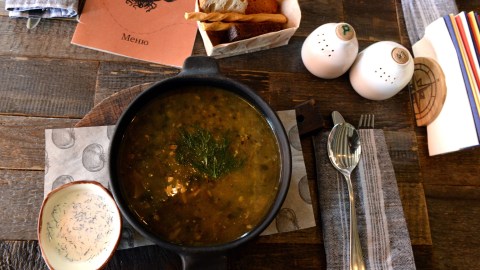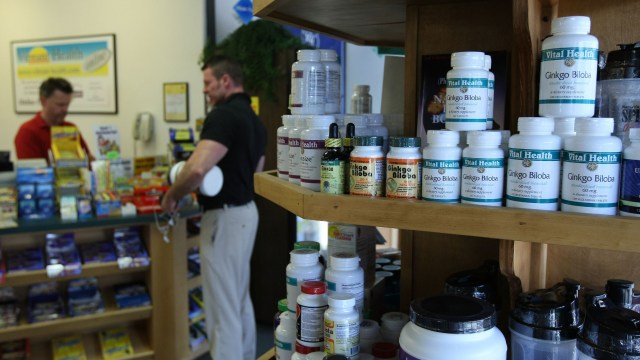It’s Not Just Fast-Food Chains, Going Out to Eat Anywhere Is Bad for You

Going out to eat is bad for our waistlines, and I’m not talking about the drive-thru at McDonald’s — or any fast-food chain for that matter. When Americans go out to eat, they tend to eat 200 more calories, on average, compared to when they stay at home for meals. Researchers conducting a study on the health of going out to eat, say that more calories consumed are just the tip of the iceberg.
Researchers from the University of Illinois have examined data spanning seven years collected from 18,098 adults from the National Health and Nutrition Examination Survey. They noticed that while restaurant goers will get more nutrients, like potassium and omega-3 fatty acids, with their meal, they’re also being served up more sodium and cholesterol at a restaurant.
Professor Ruopeng An, who led the study, added that “[this] extra intake of cholesterol, about 58 milligrams per day, accounts for 20 percent of the recommended upper bound of total cholesterol intake of 300 milligrams per day.”
It was found that full-service restaurants also boost sodium intake by about 412 milligrams per day, the recommended amount being between 1,500 and 2,300mg per day — a recommendation we often exceed. Reports indicate Americans consume about 3,100mg of sodium on average each day at home.
This trend makes An worry, “because the average daily sodium intake among Americans is already so far above the recommended upper limit, posing a significant public health concern, such as hypertension and heart disease.”
He says that the findings indicate eating at a restaurant may not be the healthier choice over fast food. Cooks often put more sugar and salt into their dishes, and why not? It makes them taste better. He adds:
“In fact, you may be at higher risk of overeating in a full-service restaurant than when eating fast food. My advice to those hoping to consume a healthy diet and not overeat is that it is healthier to prepare your own foods, and to avoid eating outside the home whenever possible.”
Past studies have pointed to restaurants, as well as wholesalers as major contributors to the rising obesity rates. We eat out because it’s tasty and requires no effort. Dr. Steven Masley explains how healthy diets need to be tasty too.
Read more at Science Daily.
Photo Credit: VASILY MAXIMOV / Getty





